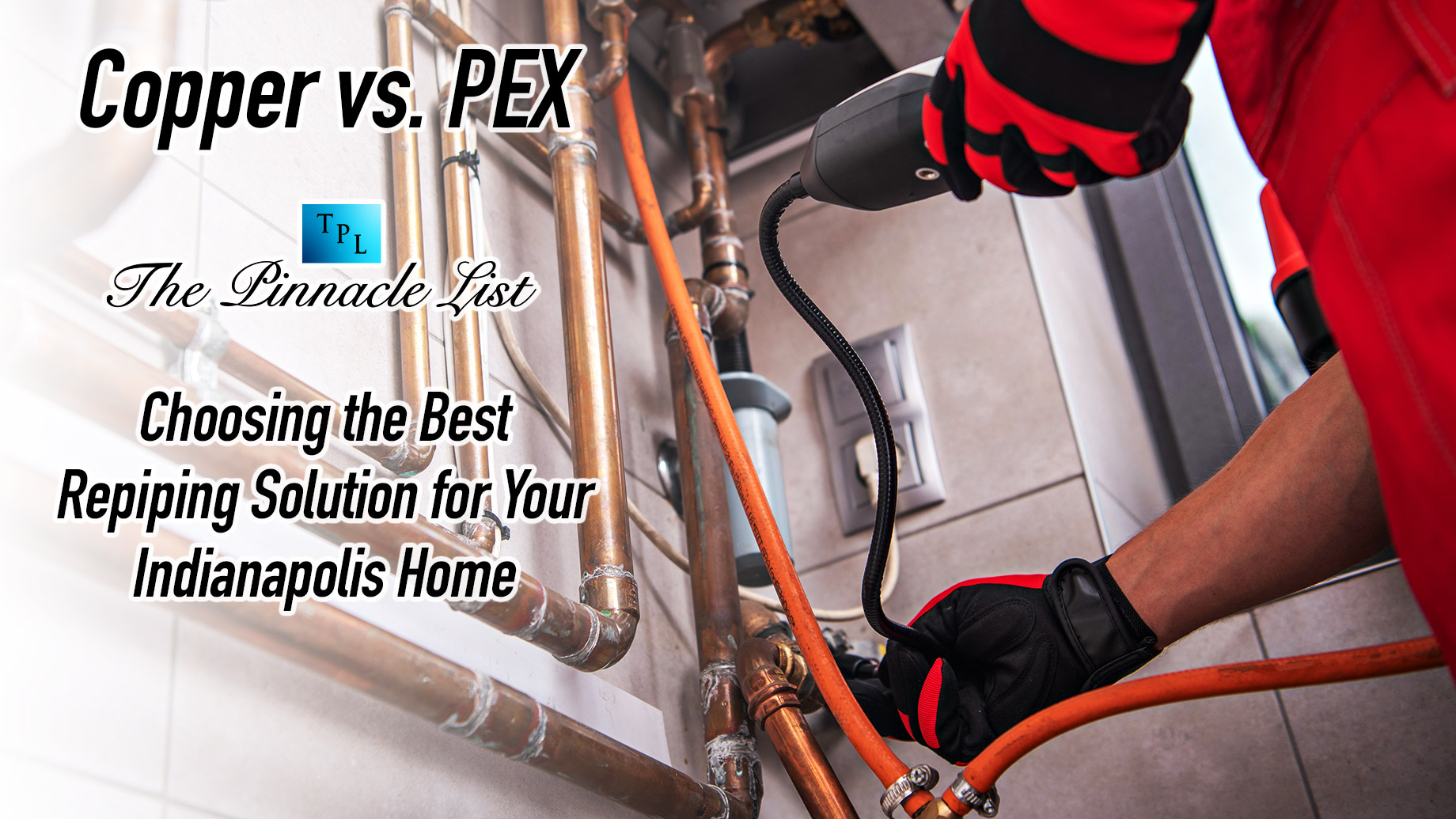
When it comes to home maintenance in Indianapolis, ensuring your plumbing system operates smoothly is a critical priority. Over time, plumbing pipes can degrade, leading to leaks, water damage, and costly repair bills. That is where repiping comes into play, offering a long-term solution to restore your home’s plumbing infrastructure. However, a key decision during the repiping process is choosing the right material for your pipes. The debate often narrows down to two main contenders—copper and PEX. Both have unique advantages and potential drawbacks. This guide will walk you through the differences between these materials so you can make an informed choice.
Why Repiping Matters
Indianapolis homes, especially those built before the 1970s, often rely on outdated materials such as galvanized steel. While these pipes were durable for their time, they are prone to rust, corrosion, and eventual failure. Water quality can also be affected as deteriorated materials leach impurities into the supply. Repiping resolves these issues by replacing old pipes with modern, efficient materials like copper or PEX. Homeowners turn to experts like Bassett Services: Heating, Cooling, Plumbing, Electrical to ensure the job is done right, securing their home’s plumbing for decades to come.
Copper Pipes for Repiping
One of the primary advantages of copper plumbing is its longevity. Copper is resistant to corrosion and can withstand extreme temperatures, making it suitable for residential and commercial applications. It is also a recyclable material, making it an eco-friendly choice for homeowners who want to minimize their environmental footprint. Another noteworthy feature is its ability to discourage bacterial growth within the pipe walls, supporting a cleaner water supply. Additionally, copper pipes are highly durable in Indianapolis’s variable climate. They maintain strength during freezing winter temperatures and humid summer months.
The Drawbacks of Copper
While copper’s benefits are considerable, it is not without flaws. The primary disadvantage is cost. Copper is significantly more expensive than PEX, both in terms of materials and the labor required for installation. Its rigidity also makes copper harder to install, particularly in tight or intricate spaces. Furthermore, the rising cost of metals has made copper an increasingly premium choice, adding to its overall expense.
Copper pipes can also be vulnerable to certain water conditions. For instance, if your Indianapolis home sources particularly acidic water, it may accelerate copper pipe corrosion, reducing its longevity. However, consulting professionals like Bassett Services: Heating, Cooling, Plumbing, Electrical can ensure preventative measures are taken to mitigate these risks.
The Benefits of PEX
Flexibility is one of PEX’s standout features. Its design allows it to bend around corners without additional fittings, making it far easier to install. This flexibility is particularly valuable for older Indianapolis homes, where layouts may require creative routing. PEX is also highly resistant to freezing. While no plumbing material is fully immune to freezing temperatures, PEX can expand under pressure, reducing the risk of pipe bursts during Indianapolis’s icy winters. Furthermore, PEX is significantly cheaper than copper. Its lightweight nature translates to faster labor times, which can result in noticeable cost savings for homeowners repiping on a strict budget.
The Drawbacks of PEX
Though PEX has many advantages, it may not last as long as copper. While copper can endure 50 years or more, the lifespan of PEX is generally shorter—usually around 30 to 40 years, depending on water quality and usage.
Another factor to consider is its sensitivity to UV light. If PEX is installed in areas with direct sunlight exposure, it may degrade more quickly, leading to compromised performance. Additionally, while PEX is generally resistant to most forms of corrosion, prolonged exposure to high chlorine levels can weaken the material. If your Indianapolis water is treated with high chlorine levels, you may want to discuss these concerns with Bassett Services: Heating, Cooling, Plumbing, Electrical to ensure proper precautions are taken. Last but not least, for some homeowners, particularly those renovating heritage homes, the modern appearance of PEX may not align with the aesthetic of older, traditional plumbing systems.
Making the Right Choice for Indianapolis Homes
Deciding between copper and PEX often comes down to a balance of factors like durability, cost, and installation requirements. Copper might be the way to go if you’re looking for a tried-and-true material that promises decades of consistent performance. On the other hand, if budget constraints and installation flexibility are key priorities, PEX offers an excellent, modern alternative. No matter which material you choose, working with a professional installer is essential to achieving quality results.
Conclusion
Repiping your Indianapolis home is a significant investment, but it pays off in improved water quality, reliability, and peace of mind. By understanding the pros and cons of copper and PEX, you are better prepared to choose the material that best suits your needs and budget.
For professional plumbing solutions, turn to Bassett Services: Heating, Cooling, Plumbing, Electrical. With years of proven experience, they will ensure your repiping project is efficient, cost-effective, and built to last. Contact them today to schedule a consultation and start securing the future of your home’s plumbing.